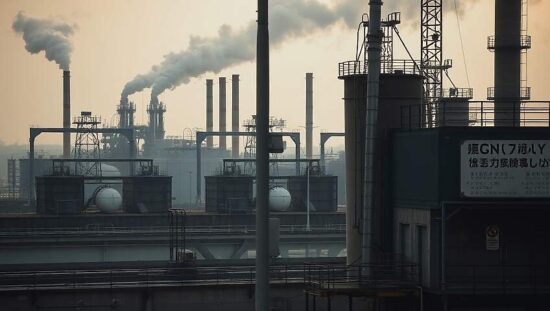The CEO of German chemical giant Evonik, Christian Kullmann, is escalating the debate surrounding the European Union’s Emissions Trading System (ETS), arguing for its complete abolition or a radical overhaul. In an interview with “Süddeutsche Zeitung”, Kullmann voiced concerns that the current ETS, which he labels the world’s strictest carbon pricing regime, is severely jeopardizing the competitiveness of European industry.
Kullmann’s critique centers on the disconnect between the ETS’s stringent regulations and the realities of a rapidly shifting global landscape. He argues that the system unfairly penalizes industries possessing technologically advanced and globally competitive operations through burdensome additional charges. His core assertion is that the ETS is actively undermining Europe’s economic standing by placing it at a disadvantage in the international marketplace.
“Europe is importing massive quantities of products from countries with significantly less stringent environmental standards while simultaneously disincentivizing our own industries” Kullmann stated, characterizing the situation as “economic madness” for the continent. He emphasizes a fundamental shift in international relations, pointing to a decline in collaborative problem-solving among industrial nations, replaced by a climate of competitive self-interest. This intensified global competition is exacerbated by governments actively supporting their industries and offering substantially lower energy and raw material costs.
Furthermore, Kullmann is skeptical of the proposed Carbon Border Adjustment Mechanism (CBAM), intended to protect European industries from environmental dumping. He contends that the EU’s ability to effectively enforce such a mechanism remains questionable, describing the initiative as “a formal-bureaucratic trickery with no effect”. He questions its practical viability, warning that Europe may struggle to aggressively implement the measure if faced with significant pushback.
To alleviate the immediate pressures on European industry, Kullmann is advocating for an extension of the allocation of free carbon emission certificates. He calls for a broader reconsideration of the overall system, suggesting an increase in the total number of allocated certificates or a reduction in their price. Ultimately, he believes a fundamental reassessment of what European industries can realistically achieve in terms of emissions reduction is crucial, encompassing sectors from automotive to cement and chemicals. His comments trigger a fierce debate about the balance between environmental ambition and economic viability, exposing deep fault lines within Europe’s climate policy framework.





